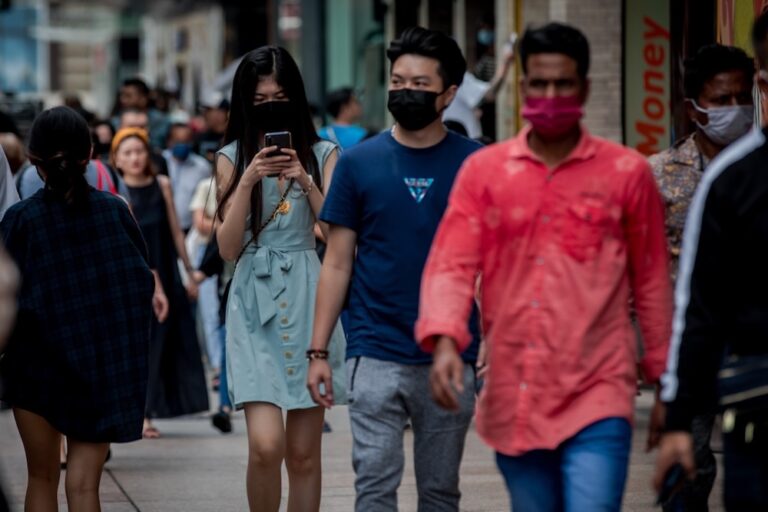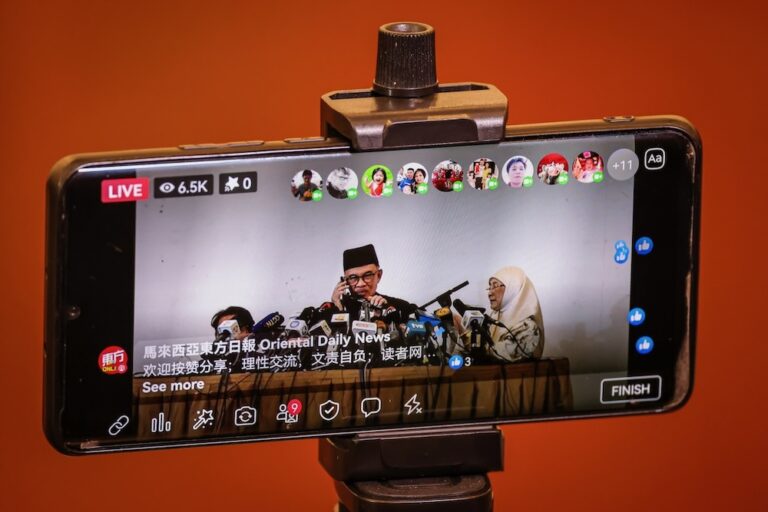CIJ is alarmed at yet another attempt to further control social media. Any further regulation risks unduly curbing freedom of expression while being ineffective in assisting to curb violent behaviour such as that seen at Low Yat Plaza.
This statement was originally published on CIJ’s Facebook page on 15 July 2015.
The Centre for Independent Journalism (CIJ) refers to the calls by various government officials, including Prime Minister Najib Razak, to impose more regulations on social media in the wake of the mob that gathered at Low Yat Plaza on 12 July 2015. The gathering resulted in an assault against several individuals, three of whom were journalists.
CIJ is alarmed at yet another attempt to further control social media. Any further regulation risks unduly curbing freedom of expression while being ineffective in assisting to curb violent behaviour such as that seen at Low Yat Plaza.
There should be laws against the incitement to violence, hatred and discrimination. This is clearly stated in Article 20 of the International Covenant on Civil and Political Rights. Such laws would also constitute legitimate restrictions to freedom of expression under Article 10 of Malaysia’s Federal Constitution.
Laws that legitimately restrict the freedom of expression should be precise, narrowly defined and proportionate to the aims they intend to achieve. At the moment, freedom of expression in Malaysia is restricted by laws that are the opposite of what such legitimate restrictions should be. Laws such as the Sedition Act and section 233(1)(a) of the Communications and Multimedia Act (CMA) are incredibly broad, open to various interpretations and are often utilised in ways that are disproportionate, resulting in unduly harsh punishments that produce a chilling effect on the freedom of expression. These broad and arbitrary laws are already applicable to social media, which is already highly regulated. This can be seen by the various arrests and prosecutions against many indivduals for their posts on social media.
Hate speech can be a serious matter, especially when it results in violence. But to address it, we cannot rely on vague laws that only act to disproportionately restrict freedom of expression, which is critical for healthy, democratic exchange.
Imposing further regulation on social media is not the answer to preventing further assaults such as those seen recently. It would only add to the confusion of what speech exactly is restricted, and make it even more difficult for the authorities to enforce such laws fairly.
The government instead, should move towards clearly defining what constitutes speech that incites imminent violence and hatred. A precise law which restricts speech that incites violence against persons on the basis of their race, religion or gender, for instance, would assist the police and the public in being able to identify clear instances of prohibited speech and for action to be taken accordingly.
At the moment, with the broad definitions of what speech could be criminal, including speech that “annoys”, as found in section 233(1) of the CMA, virtually any speech could be construed as falling foul of the law. This is not a desirable situation – from an enforcement perspective as well as from a rights perspective. With possibly any speech falling within the current definitions of prohibited speech, the police spend a lot of time investigating speech that merely offends or annoys, but does not actually incite any violence or hatred. As a result, less resources are available to investigate genuine cases of hate speech which incite imminent violence.
While CIJ recognises the need for those who incited violence and hatred against others based on their race to be investigated, we reject the use of the broad and draconian Sedition Act to carry out such investigations. We continue to call on the government to abolish the Sedition Act as well as section 233(1)(a) of the CMA. The government should instead pass a law that specifically prohibits speech that incites violence and hatred, which is precisely and narrowly defined. This would be a better way forward instead of rushing to regulate social media as a knee-jerk reaction to recent events.
Sonia Randhawa and Jac Kee
Directors


